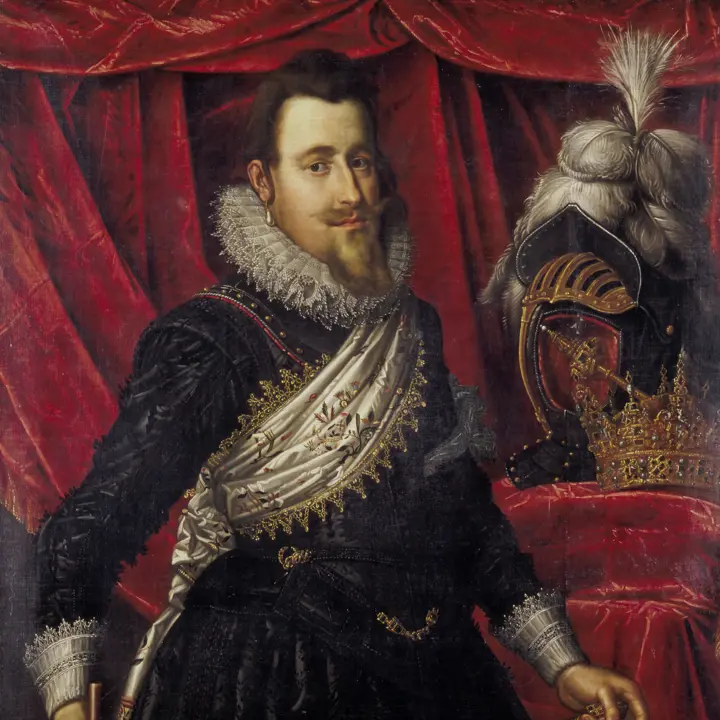
Christian IV
Christian IV was the son of Frederik II. He is remembered in particular for his many architectural projects, including Rosenborg, the Round Tower and the Old Copenhagen Stock Exchange.
Christian IV was obsessed with building a strong posthumous reputation and collected mementos from all his heroic exploits.

In mist and smoke
In early summer 1644, the Swedish and Danish navies were engaged in a game of cat and mouse in the Danish inland sea. On 1 July, the two fleets clashed at Kolberger Heide near Kiel.
When the battle broke out, Christian IV was onboard his flagship Trefoldigheden (Trinity). The ship was hit several times, and several of the King’s men fell around him. The ageing Christian IV was hit by multiple pieces of shrapnel. At first, The King was believed to be dead, but his men were able to bring him round. Christian IV was badly injured but ordered his crew to keep fighting. Three times, the two fleets exchanged fire, until darkness fell, and the fighting stopped.
The naval battle between the Danes and the Swedes was indecisive.
Loss of eyesight
During the battle, the King was struck by countless metal fragments, including in his right eye. To this day, we can see how the blood ran down his face, staining his clothes. In posterity, he has been depicted with an eye patch, but we do not know if actually wore one. What is certain is that Christian IV has countless pieces of shrapnel removed from his body after the battle. Two of the splinters that were removed from the King’s head were mounted in a pair of earrings that he gave to his mistress for 14 years, Vibeke Kruse. You can read more about that story here.
The King himself made the decision to preserve the bloodied clothes. Christian IV was obsessed with building a strong posthumous reputation and collected mementos from his heroic exploits.
The Danish royal anthem ‘Kong Kristian stod ved højen mast’ – ‘King Christian Stood by the Lofty Mast’ – refers to this naval battle during the summer of 1644.